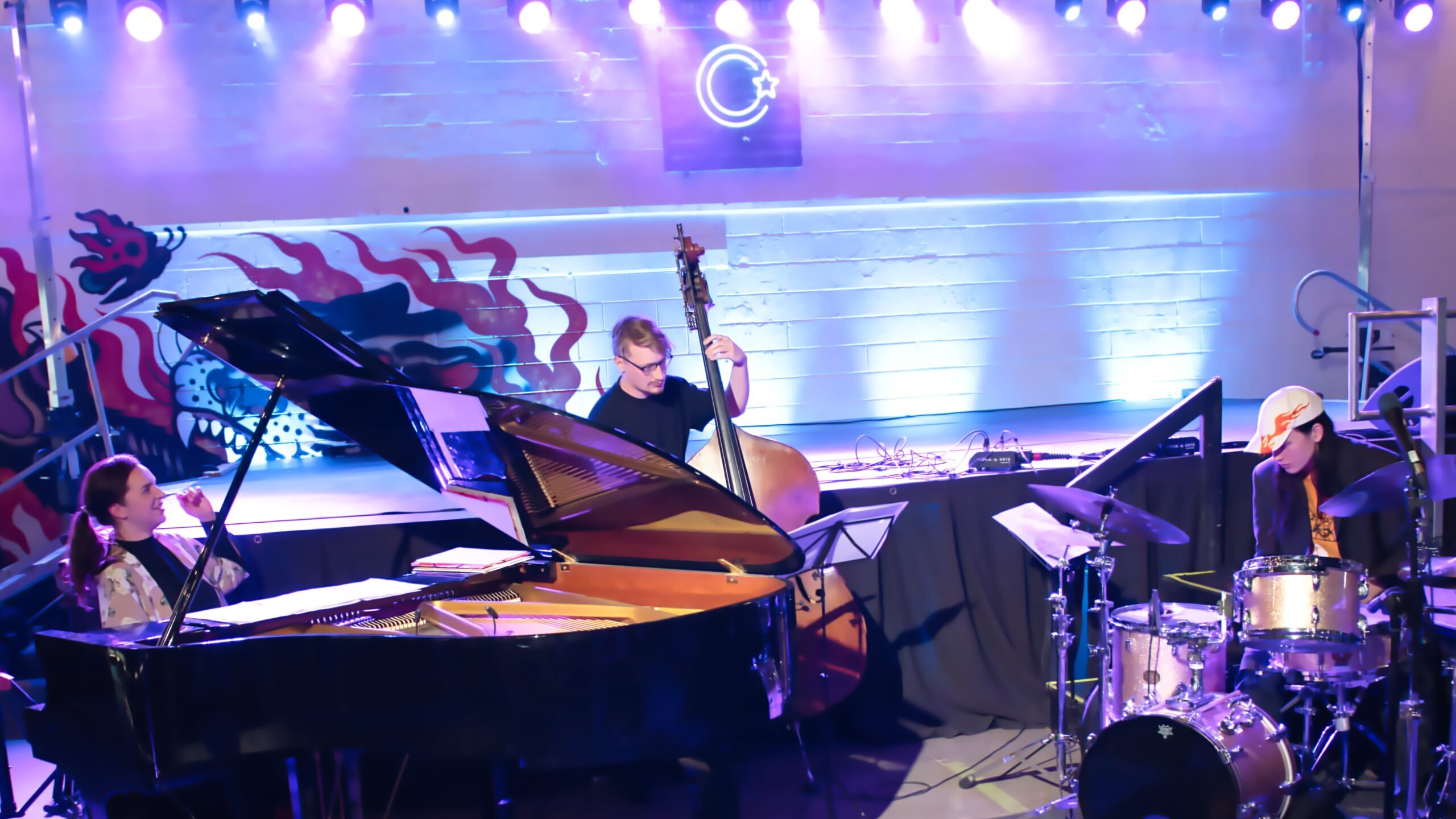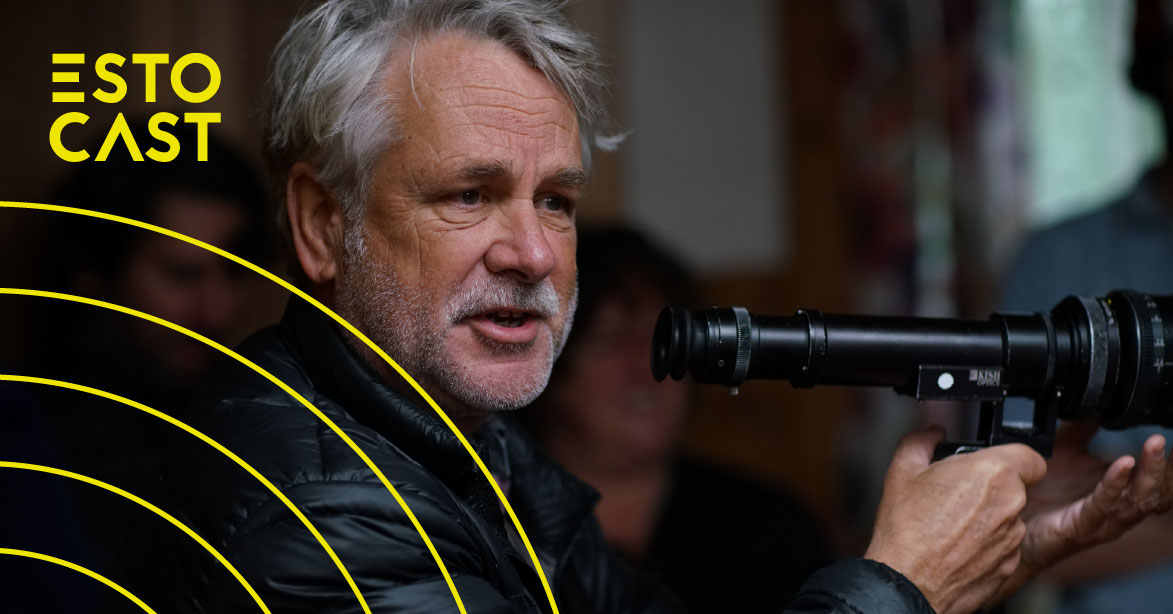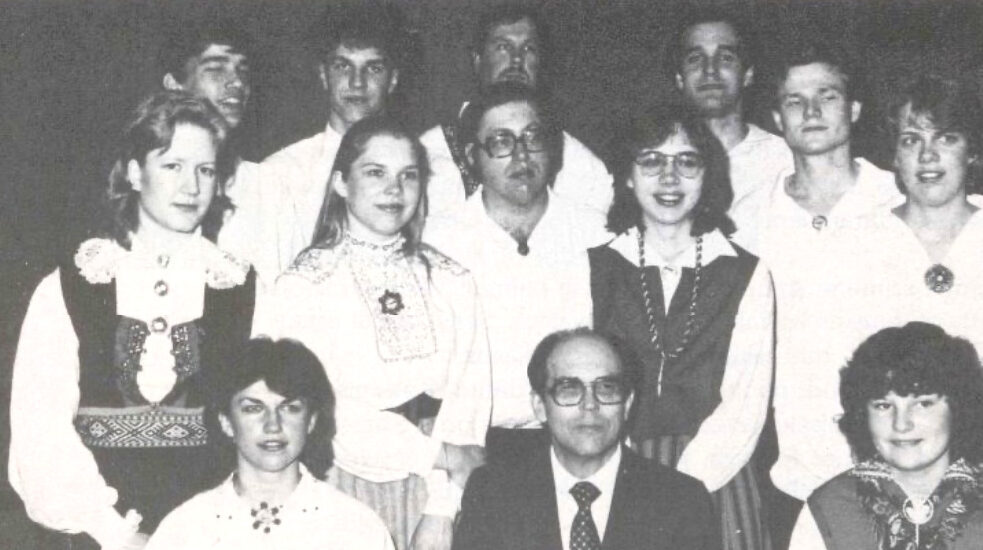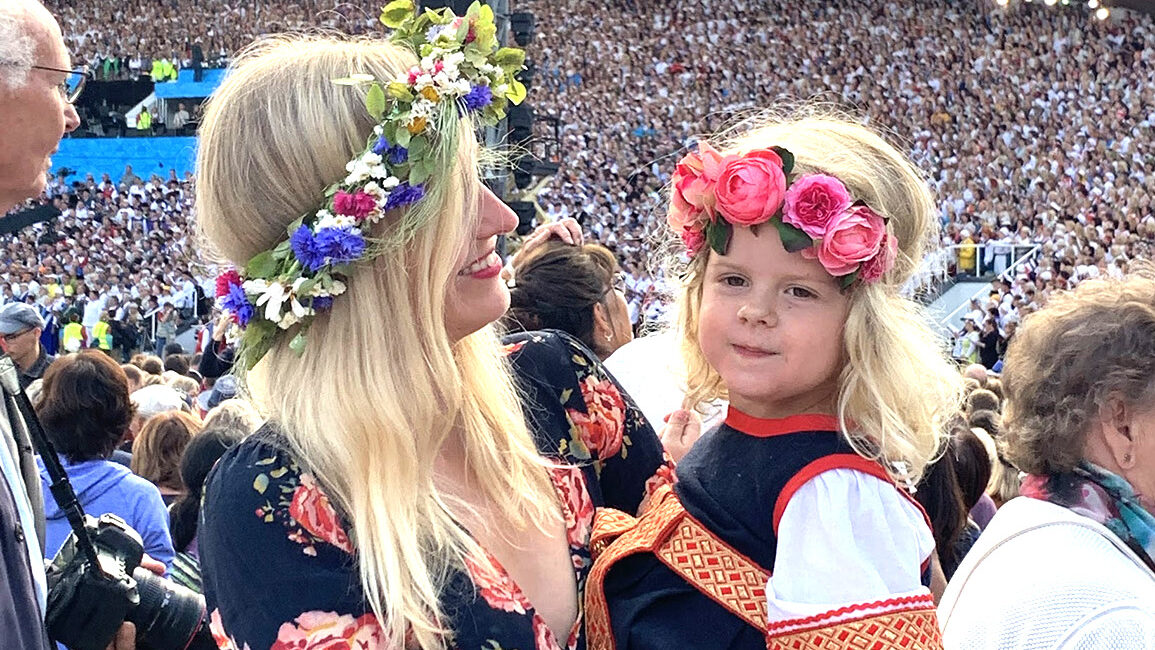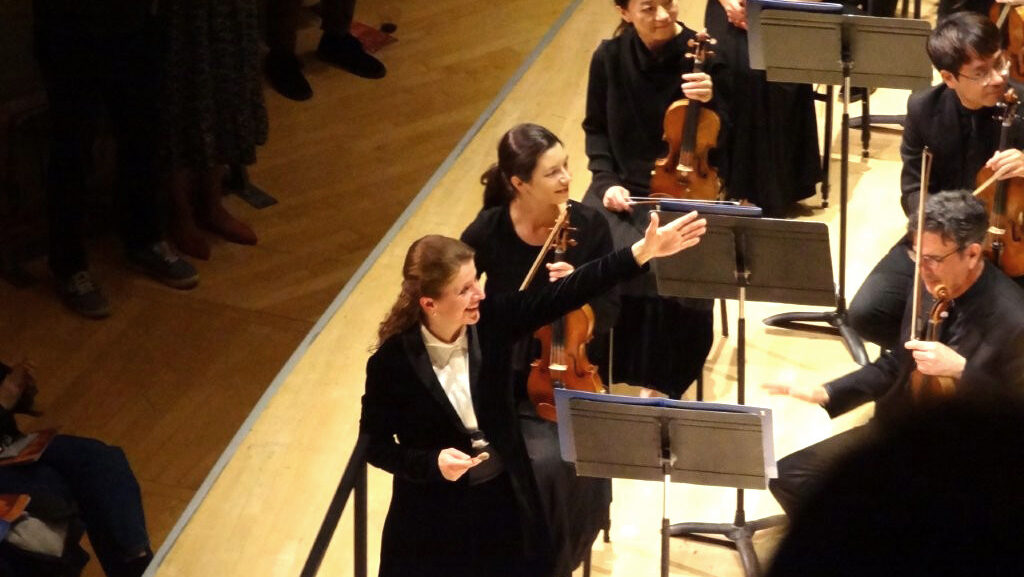Those who saw them perform at Collective Arts Brewing in Hamilton and St. Anne’s Anglican Church in Toronto will recall their explosive power and unpredictable dynamic changes. Kirke Karja led the band with colourful expression and sophistication on the piano. Joining Karja on stage were two musicians she met in Berlin in 2018. Ludwig Wandinger played his whole kit of cymbals and drums with a distinct textural style. Bassist Felix Henkelhausen (stepping in for Étienne Renard) played with empathy, bringing together the rhythms and voicings coming at him from either direction.
When all was said and done, though, what were their takeaways from playing in Canada? Sitting in a row, the trio defined their feelings about their EMW festival performances with one word each: “extremely”, “nutritious”, and “unpredictable”. Henkelhausen also tacked on “fruitful” as a bonus word.
It was extreme, it seems, on account of this being the trio’s first musical expedition to North America. New perspectives abounded. And as Henkelhausen later discussed, it was fun to get to know “this side of the planet”, about which so much can be learned from music, movies, and art. A continent where so much pop culture originates, which has “a cultural monopoly in a certain way.” The trio had two weeks to explore, venturing out to the Toronto Islands and hitting up the perpetual live music party destination DROM Taberna, for instance.
Wandinger emphasized the word “Nutritious… because we had a lot of amazing food… also musical food, I guess… [It] feels like tasting new flavours.”
Among the trio’s favourite artists at the festival were Kara-Lis Coverdale, Tragedy Ann, and Maria Minerva. Maria Minerva was a particularly big discovery for Kirke Karja because “she’s quite well known in Estonia, but I never had the chance to see her or spend time together with her… And the funniest thing… I have a country house in South Estonia… And she's also spending lots of time in that really, really tiny village in the middle of nowhere because some members of her family are from there… And now we're meeting here in Toronto.” As you can see, the festival has brought people together.
On a culinary level, Wandinger said, “We spoiled ourselves as much as possible…” The members of the trio are foodies, tracking down the restaurants of chefs they admire, tucking into bánh mì on Spadina Avenue, and then going second-hand shopping together. It’s important to treat yourself when on tour.
As far as the word “unpredictable”, there are always unexpected things that arise when navigating the logistics of a tour. Yet, what sets this band apart is their knack for making something ingenious out of the unpredictable, such as the musical instruments you may be using. Hekelhausen stated, “When you play somewhere far away… you don't know what the instrument is going to be like, what the room is going to be. And that influences how you can play music together. And so if the instruments… present you with certain problems, then you have to do a lot of problem solving on the spot… So if something is ringing… then you can even expose that… like, ‘listen to this cheery note’ and make it into something interesting.” Moreover, they played with the sonic palettes of each venue, in terms of acoustics and ambience.
The concept of unpredictability extends to the creation of the music itself as well. That’s something that really needs to be understood when you listen to them. When asked what she was endeavouring to say with her compositions, Kirke initially said, “Actually I have no idea.”
But then she explained the essence of their improvisation. “I believe that there are no wrong choices… sometimes I listen to [recordings of our concerts] and something seems [like it]… doesn't fit at all. But I try to say to myself that it was the right decision to do something like this. Because [at] that moment, I felt that I had to do this. So it must be right…”
Wandinger adds, “I think it's just our [subconscious] coming out and doing the work for us…You just make it and then you have something and then you can actually learn from that. Because… it's almost trying to tell you something.” It’s pure expressionism.
Enabling that expressionism is an electric current of trust and intuition that all performers of improvised music tap into, which stems from playing together regularly over many years. Karja says, “I think it's really important to trust everything… [that] I'm going to do something like this and I trust my bandmates and I know that something nice will come out of this. Trusting the situation.”
Moreover, the compositions and scores Karja creates are the architecture for improvisation, with chords and notes that, when played more and more, become internalized. But, Kirke makes it clear, “It doesn't have to be like this: that there's a theme, improvisation, a theme, coda—it's not like this. Sometimes [there’s a] long, long improvisation and then a little bit of theme. You never know.” Each time, their show is different. The trio smile, let loose, and notice where everybody is going. They exhibit an infectious sense of joy and freedom when performing.
The trio is all formally trained in jazz music, Kirke Karja having been a student of Kristjan Randalu at the Estonian Academy of Music Theatre. They all learned jazz vocabulary. But sadly, despite loving jazz so much, they have had to push it away. Jazz, as all three musicians express, has a lot of baggage associated with it for some musicians. For Kirke, there were times when her own style of composition was belittled by “jazz policemen” in favour of emulating other composers. She recalls being told to “…check out that Duke Ellington stuff.” Karja insists, “I love Duke Ellington. But, in a way, I started to hate this… why [can’t I] do things the way I want to?… why [do] I have to copy him?”
Ludwig said that one of his friends refers to jazz as a “cage of heroes”, and with that in mind, the trio have tried to move away from any restrictions.
The trio have gravitated towards the broader world of “improvised music.” They are free. They play in their own way. And they are all there to back each other up.
***
You can listen to Kirke Karja’s compositions on Spotify and click “follow” there for an update on when the next album—recorded in Budapest, Hungary—comes out in the beginning of 2024.
Also be sure to watch the full EstoCast interview with Kirke Karja Trio on YouTube:
